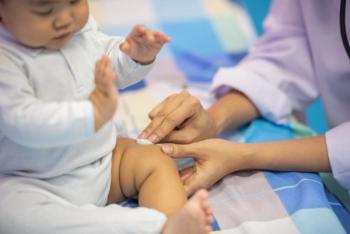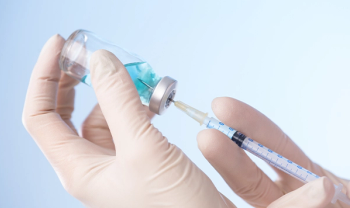
HHS Brings Back Task Force on Safer Childhood Vaccines Amid ACIP Changes
HHS reinstates the Task Force on Safer Childhood Vaccines to enhance vaccine safety and oversight amid concerns over recent ACIP changes.
The HHS has brought back the Task Force on Safer Childhood Vaccines, a federal panel aimed at improving vaccine safety, quality and oversight, as announced today by the agency. The announcement comes after changes to the Advisory Committee on Immunization Practices (ACIP) sparked concerns about vaccine access and public trust.
"By reinstating this task force, we are reaffirming our commitment to rigorous science, continuous improvement, and the trust of American families," NIH Director
The Task Force will work with the Advisory Commission on Childhood Vaccines to recommend ways that will improve the safety of vaccines, reduce side effects and improve how vaccines are made, distributed and monitored. HHS plans to send its first report to Congress within two years, with updates every two years after that.
The announcement follows controversial actions by HHS earlier this year.
In May, the Secretary of HHS, Robert F. Kennedy, Jr., removed all 17 ACIP members and replaced them with eight new members. According to the
Kennedy also removed the routine COVID-19 vaccine recommendation for healthy children and pregnant women, changing it to "shared clinical decision-making" between patients and providers.
Public health experts have warned that these changes could weaken ACIP’s role as a trusted, evidence-based advisory body. ACIP’s recommendations help determine which vaccines insurers must cover under employer plans, the Affordable Care Act, Medicaid, the Children’s Health Insurance Program and Medicare Part D.
Cost-free coverage of ACIP-recommended vaccines has been shown to increase vaccine use and reduce overall health care costs, according to the Commonwealth Fund. Without ACIP recommendations, insurers could vary coverage and require patients to pay out-of-pocket, causing confusion for both patients and providers.
Created in the 1960s, members of ACIP are selected for their clinical, scientific and public health knowledge of immunizations. They review disease patterns, vaccine safety and effectiveness, economic factors and how vaccines can be delivered to the public. ACIP also issues annual child and adult immunization schedules.
The Commonwealth Fund expressed their concern that the recent membership changes could make it harder for ACIP to continue its work effectively.
Vaccine coverage is already a concern.
In many states, less than 75% of children have received all recommended early childhood vaccines. Numerous reports of the once-eliminated measles are reappearing, as well as whooping cough and other preventable diseases that are rising. Public health experts stressed that strong, trusted guidance is critical to protect communities and prevent outbreaks.
While the Task Force shows HHS’s commitment to safety, the ACIP changes have raised questions about public trust and evidence-based decision-making.
Many medical groups, including the American Academy of Pediatrics, criticized the removal of routine COVID-19 vaccine recommendations for pregnant women, pointing to research showing vaccines are safe and effective. Lawsuits and letters from over 30 health organizations highlighted the risks: changes in guidance could affect vaccine coverage, costs and public health.
The return of the Task Force and changes to ACIP show the challenges in U.S. vaccine policy, which include keeping vaccines safe, accessible and trusted.
HHS officials say these efforts aim to protect children from preventable diseases and improve vaccine safety. How these changes will affect vaccine coverage, insurance rules and public confidence is still unclear.
Newsletter
Get the latest industry news, event updates, and more from Managed healthcare Executive.

























